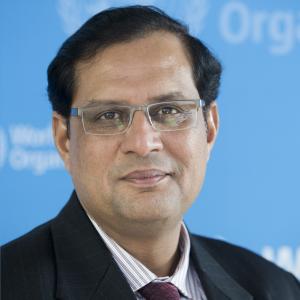
Respected Secretary of State for Equality, H.E. Elvina de Sousa Carvalho
Respected KOICA Country Director Ms. Youn Hwa Kang
Country Representative a.i, UNFPA, Mr. Bruce Campbell
Deputy Resident Representative UNDP, Ms. Adeline Carrier
Officer in Charge IOM, Ms. Ayu Hannah Zaimah
Together for Equality Programme Manager, UN Women, Ms. Nuntana Tangwinit
Esteemed members of Diplomatic Corp,
Officials from national government institutions, and municipality authorities of Dili, Baucau, Covalima, and Oecusse-Ambeno,
Civil society partners,
Development Partners, and Colleagues from the UN,
Distinguished guests, ladies and gentlemen,
Bom dia (Good morning everyone!)
It is both an honor and a privilege to stand before you today as we come together to celebrate the remarkable progress made in the collective fight against gender-based violence (GBV) in Timor-Leste.
Today, we highlight the outstanding results that have emerged from the collaborative efforts of the Government of Timor-Leste, civil society organizations, and our four UN agencies—UN Women, IOM, UNDP, and UNFPA.
Over the past four years, substantial progress has been achieved in addressing GBV.
This collaborative effort has positively impacted the lives of women, men, girls, boys, and marginalized groups by driving a shift in societal attitudes and inspiring a transformative perspective on violence.
There has been a nearly 37% decrease in females and a 23% decrease in males justifying violence, based on the programme endline survey in the 4 municipalities that participated under the T4E programme, reflecting a reduced acceptance of gender-based violence at both individual and interpersonal levels.
A significant achievement has been the institutionalization of effective practices within both government and civil society frameworks,establishing a foundation for long-term sustainability.
The integration of Gender based violence and sexual and reproductive health rights into the national curriculum for junior high school students ensures that young people are educated about these vital issues from an early age.
The collaboration has also led to meaningful improvements in service delivery.
The expansion of trauma-informed, survivor-centered care centres from zero to 34 across health facilities demonstrates an unwavering commitment to providing essential support and resources for survivors, ensuring that their voices are heard and their needs met.
Additionally, the legal and policy frameworks essential for responding to GBV have been strengthened.
Establishing clear Standard Operating Procedures within various government bodies sets a standard for coordination and effective action, creating a comprehensive approach to this critical issue.
Overall, I am proud to report that the program has directly benefited nearly 61,000 individuals and indirectly reached over 300,000 men and women.
The collective efforts under the T4E aligns seamlessly with the National Action Plan on Gender-Based Violence and the United Nations Sustainable Development Cooperation Framework, reinforcing a shared vision for a safer society.
Excellences, Ladies and Gentlemen
While celebrating these achievements, it is important to remain mindful of the challenges that persist.
GBV is deeply rooted in societal norms and power dynamics, and addressing these complex issues requires ongoing vigilance and adaptability.
Engaging men and boys as allies in this vital endeavor is essential; their role in reshaping attitudes and promoting positive behaviors cannot be overstated. Together, a culture that unequivocally rejects violence and actively promotes equality can be built.
A robust health sector response to GBV with system strengthening to address the health consequences of violence against women, documenting incidents, and coordinating efforts with other sectors, is critical for prevention and management of GBV and thereby enhancing overall health and well being of women.
Excellences, Ladies and Gentlemen
Let me take the opportunity to sincerely thank KOICA for their tremendous and generous support. Your dedication and investment in promoting gender equality and empowering women have been crucial in shaping the success of these initiatives.
I would like to extend my heartfelt appreciation to the nearly 50 partners who have joined forces with the UN under the Together for Equality programme.
The expertise, resources, and passion you bring to this collaboration have made a meaningful impact in advancing our collective goals.
As discussions unfold over the next two days, the focus will be on how to translate these achievements into actionable strategies for the future.
The mission is clear: ensuring that established practices are effectively integrated into the frameworks of both government and civil society.
Thank you all for your dedication and collaboration in this essential work.
Together, we can ignite a movement that will end gender-based violence and empower all.
Obrigado Barak!, Thank you.








